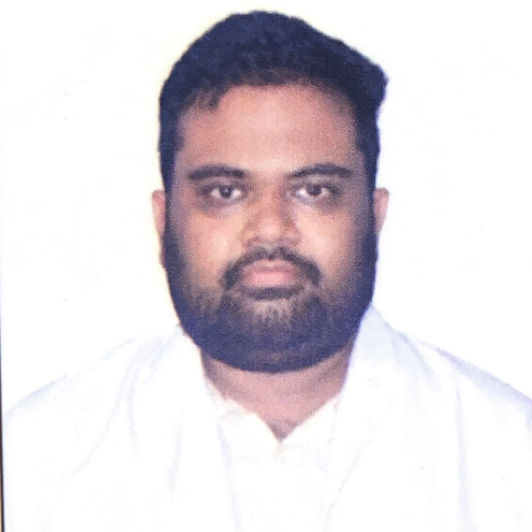Normal Pulse Rate Explained
Understand what a normal pulse rate is, what affects it, and how to maintain a healthy heart rate. Learn when to seek medical advice for irregular heartbeats.

Written by Dr. Shaik Abdul Kalam
Reviewed by Dr. Mohammed Kamran MBBS, FIDM
Last updated on 20th Aug, 2025

Introduction
Your pulse rate is a simple yet important indicator of your heart health. Whether you're an athlete, a busy professional, or someone managing a health condition, understanding your pulse rate can help you stay informed about your well-being. In this article, we’ll explain what a normal pulse rate is, why it matters, and how you can keep it in a healthy range.
What Is a Pulse Rate?
Your pulse rate, also known as your heart rate, is the number of times your heart beats per minute (bpm). It reflects how efficiently your heart pumps blood throughout your body. You can check your pulse by placing two fingers (not your thumb) on your wrist (radial artery) or neck (carotid artery) and counting the beats for 30 seconds, then multiplying by two.
What Is a Normal Pulse Rate?
A normal resting pulse rate for most healthy adults ranges between 60 to 100 beats per minute (bpm). However, this can vary based on factors like age, fitness level, and overall health:
Newborns (0-1 month): 70-190 bpm
Infants (1-11 months): 80-160 bpm
Children (1-10 years): 70-120 bpm
Teens (11-17 years): 60-100 bpm
Adults (18+ years): 60-100 bpm
Athletes & highly active individuals: 40-60 bpm (due to better cardiovascular efficiency)
If your pulse is consistently below 60 bpm (bradycardia) or above 100 bpm (tachycardia) at rest, it may indicate an underlying issue that needs medical attention.
What Affects Your Pulse Rate?
Several factors can influence your heart rate, including:
Physical Activity: Exercise temporarily increases your pulse rate.
Stress & Emotions: Anxiety, excitement, or fear can raise your heart rate.
Medications: Some drugs (like beta-blockers) lower heart rate, while others (like decongestants) may increase it.
Caffeine & Alcohol: These can cause temporary spikes in heart rate.
Body Temperature: Fever or extreme heat can elevate your pulse.
Hydration & Nutrition: Dehydration or electrolyte imbalances may affect heart rate.
When Should You Be Concerned?
While minor fluctuations are normal, consult a doctor if you experience:
Persistent high pulse (over 100 bpm at rest)
Persistent low pulse (under 60 bpm with dizziness/fatigue)
Irregular heartbeat (skipping beats or fluttering)
Chest pain, shortness of breath, or fainting spells
These could signal conditions like arrhythmia, thyroid disorders, or heart disease.
Consult Top Specialists for Personalised Tips
How to Maintain a Healthy Pulse Rate
Here are some simple ways to keep your heart rate in a healthy range:
1. Stay Active
Regular exercise (like brisk walking, swimming, or cycling) strengthens your heart, helping it pump blood more efficiently. Aim for 150 minutes of moderate activity per week.
2. Manage Stress
Practice relaxation techniques like deep breathing, meditation, or yoga to keep stress levels in check.
3. Eat a Heart-Healthy Diet
Include fruits, vegetables, whole grains, lean proteins, and healthy fats (like nuts and olive oil). Avoid excessive salt, sugar, and processed foods.
4. Stay Hydrated
Dehydration can strain your heart. Drink enough water throughout the day.
5. Limit Stimulants
Reduce caffeine, nicotine, and alcohol intake if they cause irregular heartbeats.
6. Get Enough Sleep
Poor sleep can disrupt heart function. Aim for 7-9 hours of quality sleep nightly.
7. Monitor Your Pulse Regularly
If you have a history of heart issues, track your pulse at rest and during activity. Smartwatches or home blood pressure monitors can help.
When to See a Doctor
If you notice unusual changes in your pulse rate or experience symptoms like dizziness, fatigue, or chest pain, consult a healthcare professional. Early detection of heart issues can prevent complications.
Need a Heart Health Check-Up?
If you're concerned about your pulse rate or overall heart health, consider booking a consultation with a cardiologist or scheduling a heart health test through Apollo 24|7. Early screening can help detect and manage potential issues before they become serious.
Final Thoughts
Your pulse rate is a vital sign of your heart’s health. While minor variations are normal, consistently high or low readings may need medical evaluation. By staying active, eating well, managing stress, and monitoring your heart rate, you can maintain a healthy pulse and overall well-being.
Consult Top Specialists
Consult Top Specialists for Personalised Tips

Dr. Bulbul Biswas
General Practitioner
35 Years • MBBS, Diploma in Maternity and child welfare
Kolkata
HERSTEL CARE CLINIC, Kolkata

Dr. Dixant Chhikara
General Practitioner
4 Years • MBBS
Delhi
SKYNN CARE, Delhi

Dr. Vandana Malik
General Practitioner
8 Years • MBBS, FAM
Noida
Skinlogics Clinic, Noida

Dr. Rajib Ghose
General Practitioner
25 Years • MBBS
East Midnapore
VIVEKANANDA SEBA SADAN, East Midnapore

Dr. Avinash Pasuparthy
General Practitioner
5 Years • MBBS
Visakhapatnam
Apollo Clinic Vizag, Visakhapatnam
Consult Top Specialists

Dr. Bulbul Biswas
General Practitioner
35 Years • MBBS, Diploma in Maternity and child welfare
Kolkata
HERSTEL CARE CLINIC, Kolkata

Dr. Dixant Chhikara
General Practitioner
4 Years • MBBS
Delhi
SKYNN CARE, Delhi

Dr. Vandana Malik
General Practitioner
8 Years • MBBS, FAM
Noida
Skinlogics Clinic, Noida

Dr. Rajib Ghose
General Practitioner
25 Years • MBBS
East Midnapore
VIVEKANANDA SEBA SADAN, East Midnapore

Dr. Avinash Pasuparthy
General Practitioner
5 Years • MBBS
Visakhapatnam
Apollo Clinic Vizag, Visakhapatnam

.webp)


